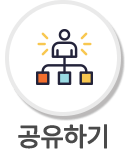A Look At Pediatric Anxiety Treatment's Secrets Of Pediatric Anxiety T…
페이지 정보
작성자 Dallas Armytage 조회 34회 작성일 24-08-10 20:59본문
Pediatric Anxiety Treatment
All teenagers and children experience anxiety or anxiety at times. However, it becomes a problem when it stops them from functioning normally.
 Treatments such as selective serotonin reuptake inhibitors (SSRIs) such as fluoxetine, sertraline or Lexapro are frequently suggested for treating childhood anxiety. They are effective in reducing symptoms and allows the child or teen to take part in CBT.
Treatments such as selective serotonin reuptake inhibitors (SSRIs) such as fluoxetine, sertraline or Lexapro are frequently suggested for treating childhood anxiety. They are effective in reducing symptoms and allows the child or teen to take part in CBT.
Cognitive therapy for behavioural issues
CBT is one of the best anxiety disorder treatment treatments for anxiety disorders in adolescents and children. It is a short-term treatment that concentrates on teaching the skills required to manage the problem. It can be completed with a therapist or on your own. It can help you transform negative thoughts and behaviours, and teach you to question the assumptions that cause your anxiety. CBT is based on the idea that you have control over your emotions and behavior and that healthy emotions lead to healthy actions. It also teaches you how to employ coping strategies that include learning to detach yourself and lower the intensity of strong emotions.
In contrast to other forms of psychotherapy, CBT is grounded in scientific evidence and is focused on measurable outcomes. The goal of treatment is to lessen symptoms, and to allow you to live life to the fullest. CBT has been proven to be more effective than medication in treating anxiety disorders in many children. It is also safe for children. A few studies suggest that CBT coupled with medication may enhance outcomes.
A thorough diagnostic evaluation is the first step towards the successful CBT treatment for children and adolescents suffering from an anxiety disorder. This includes a comprehensive assessment of the child's severity of symptoms and a differential diagnosis to distinguish between anxiety disorders and other mental health disorders such as depression. It is crucial to determine any comorbid medical or physical conditions that can influence the response to anxiety treatment for example, hyperthyroidism and asthma.
CBT for anxiety disorders is a blend of cognitive therapy and behavioral therapy. Cognitive therapy teaches how to identify and challenge harmful beliefs and thoughts, whereas behavioral therapies help you develop specific skills to overcome fears or phobias. These methods are combined to aid you in conquering your fears and increase your confidence.
Most CBT studies for childhood anxiety have focused on the characteristics of the baseline that affect treatment outcomes, with some evidence to support the idea that these factors are not dependent on the treatment modality. The results of predictive, moderator and mediator studies have been used to design personalised approaches to delivering CBT for anxiety disorders.
Anxiety medication
Children and adolescents who suffer from anxiety disorders can benefit from cognitive behavior therapy (CBT) however, they may require medication. Anxiolytics are medications that relax the body, alter the way children think, and help them to confront their fears in small steps. They are only prescribed by doctors who specialise in young and children's mental health.
A combination of CBT and anxiolytics are typically recommended for treating anxiety. These medicines are most effective when used regularly and correctly. Some children may experience side effects, but they usually disappear within a few days. Children and teens suffering from anxiety disorder should be checked often to determine how their treatment is progressing.
Certain medicines used to treat anxiety are SSRIs including duloxetine (Cymbalata, Drizalma), the venlafaxine (Xanax ER, EX-venlafaxine) and sertraline (Zoloft). These have been proven to be effective in adolescents and children with generalised anxiety disorder and social anxiety disorder. These medications inhibit serotonin uptake and boost its release into presynaptic nerves which increases the amount of serotonin that can interact with the other nerve cells.
Antipsychotics and benzodiazepines can be used to help reduce anxiety. The former reduces a child's physical symptoms, like the rapid heartbeat or trembling. They are usually used for short-term anxiety-inducing situations, such as getting on an airplane, or going to the doctor. Sometimes, they are used as a bridging medication to let the SSRI to take effect or for the first 2 weeks of an antidepressant treatment.
The most common comorbidity with anxiety disorders is major depressive disorder, particularly in teenagers. This can affect the response of a teenager to psychotherapy and increase the chance of an onset of recurrent anxiety episodes. Other comorbidities include ADHD and obsessive compulsive disorder and post traumatic stress disorder. It is vital that a thorough diagnosis of the child suffering from anxiety treatment for autism is made and any comorbidities are evaluated and treated accordingly.
Specialized services for children and adolescents with mental health issues (CYPMHS).
CYPMHS supports children and young people from birth until age 18. They can help you get the right treatment and advice in line with your specific requirements. Referrals can be sought from your GP or other sources, such as social workers, schools and youth offending units. The NHS 111 service can also assist you. If your child is in danger, call 999.
Anxiety disorders are common in childhood and can be treated by cognitive behavioral therapy (CBT) or medications. CBT helps children to understand their anxiety and develop coping strategies. It also helps children learn to recognize warning signs of an anxiety episode and how To treat anxiety acid reflux to manage it prior to it getting out of control. Antidepressants and sedatives are used as medicines to treat symptoms of anxiety disorders. These medications can be used in conjunction with psychotherapy.
The CYPMHS Diagnostic Clinic is able to quickly and effectively evaluate patients suffering from anxiety. The clinic is run by psychologists who are clinical for children and adolescents and psychiatrists. The clinical team uses interviews and questionnaires to diagnose the condition. They will also examine other medical conditions that could be causing the anxiety. This includes thyroid dysfunction, asthma, chronic pain, lead poisoning, hyperglycemia and hypoxia, pheochromocytoma and systemic lupus.
A psychiatric decision unit is an assessment area or ward in acute hospitals. It provides an environment that is safe and secure to a health-based Place of Safety for CYP as they undergo evaluation. It is a viable alternative to traditional hospital admissions and has been proven that it improves patient experience. There is a small body of research about psychiatric decisions units, however more research is required.
Enhanced Support teams are multi-disciplinary teams that work with people at high risk of CYP who are at greater risk of developing mental health difficulties due to their social circumstances and/or negative childhood experiences. They can offer advice, consultation, and training to other professionals and caregivers working with these groups of CYP. They are also able to assist families and CYP to access community CAMHS services.
Counseling
With the appropriate treatment, many children can overcome anxiety. Anxiety disorders are quite common among children with 7% of children between the age of 3 and 17 being diagnosed with it. Rates have increased in recent years, and it's crucial to take steps to help kids who suffer from anxiety disorders, such as counselling.
Counselling can be a beneficial option for children who struggle with anxiety. It will help them understand the situation and teach strategies to cope. Counsellors listen to children without being judgemental and will offer suggestions on their issues. They may also suggest therapy to help with their problems.
The first step to counseling is to pinpoint the issue. This involves speaking with parents and the child with a variety of age-appropriate assessment strategies. Direct and indirect questions including interactive and projected techniques as well as behavioural tests and ratings for symptoms are all covered. Input from collateral sources such as teachers primary care, behavioral health specialists, and family agency workers can add depth and breadth to the diagnostic assessment.
A counselor will then set an objective following the test. This can be a simple goal like "I would like to be able to leave on my own" or a more specific goal such as "I would like to feel confident in my school work."
Psychiatric medications are sometimes used to treat symptoms of anxiety disorder. However, it is suggested to combine this treatment with psychotherapy. SSRIs are the current drug that is used to treat anxiety disorders, but other types of antidepressants or benzodiazepines may also be used. These medications aren't as effective and should ever be administered under the supervision of a physician.
Anxiety disorder symptoms are often associated with other mental conditions, such as attention-deficit/hyperactivity disorder (ADHD), depression, bipolar disorder, learning disorders, obsessive-compulsive disorder and eating disorders. These comorbidities can be coincidental when the symptoms of anxiety precede or are a result of the physical illness, or are causal, in which case the anxiety is a direct result of the physical condition or treatment for it.
All teenagers and children experience anxiety or anxiety at times. However, it becomes a problem when it stops them from functioning normally.
 Treatments such as selective serotonin reuptake inhibitors (SSRIs) such as fluoxetine, sertraline or Lexapro are frequently suggested for treating childhood anxiety. They are effective in reducing symptoms and allows the child or teen to take part in CBT.
Treatments such as selective serotonin reuptake inhibitors (SSRIs) such as fluoxetine, sertraline or Lexapro are frequently suggested for treating childhood anxiety. They are effective in reducing symptoms and allows the child or teen to take part in CBT.Cognitive therapy for behavioural issues
CBT is one of the best anxiety disorder treatment treatments for anxiety disorders in adolescents and children. It is a short-term treatment that concentrates on teaching the skills required to manage the problem. It can be completed with a therapist or on your own. It can help you transform negative thoughts and behaviours, and teach you to question the assumptions that cause your anxiety. CBT is based on the idea that you have control over your emotions and behavior and that healthy emotions lead to healthy actions. It also teaches you how to employ coping strategies that include learning to detach yourself and lower the intensity of strong emotions.
In contrast to other forms of psychotherapy, CBT is grounded in scientific evidence and is focused on measurable outcomes. The goal of treatment is to lessen symptoms, and to allow you to live life to the fullest. CBT has been proven to be more effective than medication in treating anxiety disorders in many children. It is also safe for children. A few studies suggest that CBT coupled with medication may enhance outcomes.
A thorough diagnostic evaluation is the first step towards the successful CBT treatment for children and adolescents suffering from an anxiety disorder. This includes a comprehensive assessment of the child's severity of symptoms and a differential diagnosis to distinguish between anxiety disorders and other mental health disorders such as depression. It is crucial to determine any comorbid medical or physical conditions that can influence the response to anxiety treatment for example, hyperthyroidism and asthma.
CBT for anxiety disorders is a blend of cognitive therapy and behavioral therapy. Cognitive therapy teaches how to identify and challenge harmful beliefs and thoughts, whereas behavioral therapies help you develop specific skills to overcome fears or phobias. These methods are combined to aid you in conquering your fears and increase your confidence.
Most CBT studies for childhood anxiety have focused on the characteristics of the baseline that affect treatment outcomes, with some evidence to support the idea that these factors are not dependent on the treatment modality. The results of predictive, moderator and mediator studies have been used to design personalised approaches to delivering CBT for anxiety disorders.
Anxiety medication
Children and adolescents who suffer from anxiety disorders can benefit from cognitive behavior therapy (CBT) however, they may require medication. Anxiolytics are medications that relax the body, alter the way children think, and help them to confront their fears in small steps. They are only prescribed by doctors who specialise in young and children's mental health.
A combination of CBT and anxiolytics are typically recommended for treating anxiety. These medicines are most effective when used regularly and correctly. Some children may experience side effects, but they usually disappear within a few days. Children and teens suffering from anxiety disorder should be checked often to determine how their treatment is progressing.
Certain medicines used to treat anxiety are SSRIs including duloxetine (Cymbalata, Drizalma), the venlafaxine (Xanax ER, EX-venlafaxine) and sertraline (Zoloft). These have been proven to be effective in adolescents and children with generalised anxiety disorder and social anxiety disorder. These medications inhibit serotonin uptake and boost its release into presynaptic nerves which increases the amount of serotonin that can interact with the other nerve cells.
Antipsychotics and benzodiazepines can be used to help reduce anxiety. The former reduces a child's physical symptoms, like the rapid heartbeat or trembling. They are usually used for short-term anxiety-inducing situations, such as getting on an airplane, or going to the doctor. Sometimes, they are used as a bridging medication to let the SSRI to take effect or for the first 2 weeks of an antidepressant treatment.
The most common comorbidity with anxiety disorders is major depressive disorder, particularly in teenagers. This can affect the response of a teenager to psychotherapy and increase the chance of an onset of recurrent anxiety episodes. Other comorbidities include ADHD and obsessive compulsive disorder and post traumatic stress disorder. It is vital that a thorough diagnosis of the child suffering from anxiety treatment for autism is made and any comorbidities are evaluated and treated accordingly.
Specialized services for children and adolescents with mental health issues (CYPMHS).
CYPMHS supports children and young people from birth until age 18. They can help you get the right treatment and advice in line with your specific requirements. Referrals can be sought from your GP or other sources, such as social workers, schools and youth offending units. The NHS 111 service can also assist you. If your child is in danger, call 999.
Anxiety disorders are common in childhood and can be treated by cognitive behavioral therapy (CBT) or medications. CBT helps children to understand their anxiety and develop coping strategies. It also helps children learn to recognize warning signs of an anxiety episode and how To treat anxiety acid reflux to manage it prior to it getting out of control. Antidepressants and sedatives are used as medicines to treat symptoms of anxiety disorders. These medications can be used in conjunction with psychotherapy.
The CYPMHS Diagnostic Clinic is able to quickly and effectively evaluate patients suffering from anxiety. The clinic is run by psychologists who are clinical for children and adolescents and psychiatrists. The clinical team uses interviews and questionnaires to diagnose the condition. They will also examine other medical conditions that could be causing the anxiety. This includes thyroid dysfunction, asthma, chronic pain, lead poisoning, hyperglycemia and hypoxia, pheochromocytoma and systemic lupus.
A psychiatric decision unit is an assessment area or ward in acute hospitals. It provides an environment that is safe and secure to a health-based Place of Safety for CYP as they undergo evaluation. It is a viable alternative to traditional hospital admissions and has been proven that it improves patient experience. There is a small body of research about psychiatric decisions units, however more research is required.
Enhanced Support teams are multi-disciplinary teams that work with people at high risk of CYP who are at greater risk of developing mental health difficulties due to their social circumstances and/or negative childhood experiences. They can offer advice, consultation, and training to other professionals and caregivers working with these groups of CYP. They are also able to assist families and CYP to access community CAMHS services.
Counseling
With the appropriate treatment, many children can overcome anxiety. Anxiety disorders are quite common among children with 7% of children between the age of 3 and 17 being diagnosed with it. Rates have increased in recent years, and it's crucial to take steps to help kids who suffer from anxiety disorders, such as counselling.
Counselling can be a beneficial option for children who struggle with anxiety. It will help them understand the situation and teach strategies to cope. Counsellors listen to children without being judgemental and will offer suggestions on their issues. They may also suggest therapy to help with their problems.
The first step to counseling is to pinpoint the issue. This involves speaking with parents and the child with a variety of age-appropriate assessment strategies. Direct and indirect questions including interactive and projected techniques as well as behavioural tests and ratings for symptoms are all covered. Input from collateral sources such as teachers primary care, behavioral health specialists, and family agency workers can add depth and breadth to the diagnostic assessment.
A counselor will then set an objective following the test. This can be a simple goal like "I would like to be able to leave on my own" or a more specific goal such as "I would like to feel confident in my school work."
Psychiatric medications are sometimes used to treat symptoms of anxiety disorder. However, it is suggested to combine this treatment with psychotherapy. SSRIs are the current drug that is used to treat anxiety disorders, but other types of antidepressants or benzodiazepines may also be used. These medications aren't as effective and should ever be administered under the supervision of a physician.
Anxiety disorder symptoms are often associated with other mental conditions, such as attention-deficit/hyperactivity disorder (ADHD), depression, bipolar disorder, learning disorders, obsessive-compulsive disorder and eating disorders. These comorbidities can be coincidental when the symptoms of anxiety precede or are a result of the physical illness, or are causal, in which case the anxiety is a direct result of the physical condition or treatment for it.








